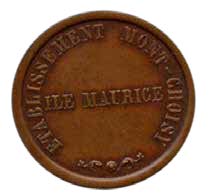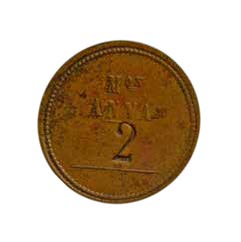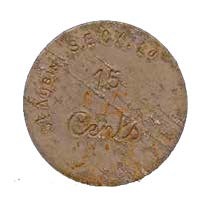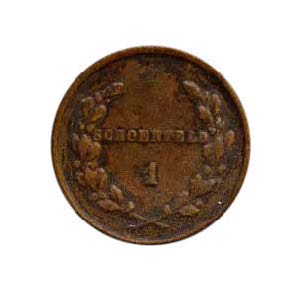
Ghirish Bissoon: Museum Officer, The Bank of Mauritius
THE IMPORTANCE OF CURRENCY DURING THE INDENTURESHIP SYSTEM IN MAURITIUS





Currency has played a vital role in demarking the concept of indentured labour from that of slavery. In Mauritius, the process was initiated by the British with the goal of underlining the ethical and moral superiority of ‘free’ labour over slave labour. It was a unique occurrence, the more so that indentureship was primarily regulated by the terms of employment which encompassed wages rate, working hours, type of work, rations, housing and medical attendance.
The domain currency
The domain currency was essentially a geographically localised money. It was destined to be used solely within the boundaries of a particular estate and nowhere else. As such, the indentured worker, unable to use this means of payment outside the estate where he worked, was confined to spending it there itself. The domain currency also helped estate owners control the movement of indentured labourers and even discouraged them from evading their estate.
The Indenture system, although a contractual
agreement between the employer and labourer,
was regulated by different Acts too. In 1867,
the new Labour Act stipulated that each immigrant should carry a ‘pass’ in order to show the authority upon verification their occupation and district they were working for. Failing to present the pass for verification led to imprisonment at the Vagrant Depot. The specific domain currency created on the estate even acted as a pass for the worker.
These unique coins are on permanent exhibition at The Bank of Mauritius Museum which was established with the support of The Mauritius Commercial Bank Group Ltd, The HongKong and Shanghai Banking Corporation Limited, Thomas De La Rue and The Royal Mint in 2017. The Museum showcases the rich and unique history of the monetary system of Mauritius since the early days of the Dutch settlement.
Domain currencies are today extremely rare by the very fact that their use was restricted both in terms of time and geography. All domain currencies illustrated have a major historical significance. Photo Sources: The Bank of Mauritius Museum/MCB Group Ltd.
